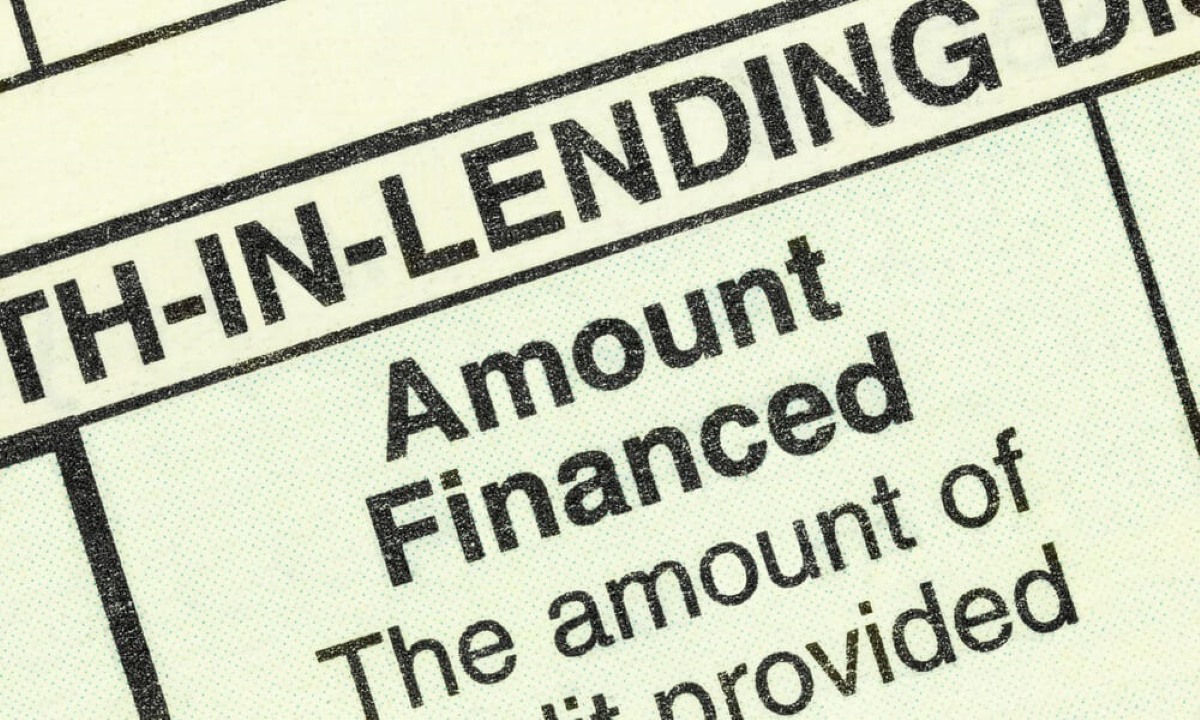

Finance
What Is The Grace Period For Filing Taxes?
Published: February 21, 2024
Learn about the grace period for filing taxes and how it impacts your finances. Understand the implications and deadlines for tax filing.
(Many of the links in this article redirect to a specific reviewed product. Your purchase of these products through affiliate links helps to generate commission for LiveWell, at no extra cost. Learn more)
Table of Contents
Introduction
Taxes are an inevitable part of life for most individuals and businesses. The process of filing taxes can be complex and time-consuming, often requiring meticulous attention to detail. However, there are instances when taxpayers may find it challenging to meet the standard tax filing deadline. In such cases, the concept of a grace period for filing taxes becomes relevant.
The grace period for filing taxes refers to the additional time granted to taxpayers beyond the original due date for submitting their tax returns. This extension can provide much-needed breathing room for individuals and businesses facing unavoidable circumstances that hinder their ability to meet the initial deadline.
Understanding the intricacies of the grace period for filing taxes is essential for taxpayers, as it can significantly impact their financial obligations and overall tax compliance. In this comprehensive guide, we will delve into the nuances of the grace period for filing taxes, reasons for filing for an extension, the process of filing for a tax extension, and the potential consequences of failing to file or pay taxes on time. By gaining a deeper understanding of these aspects, taxpayers can navigate the tax filing process with greater confidence and clarity.
As we explore the intricacies of tax filing extensions, it's important to recognize that the grace period serves as a valuable tool for managing unforeseen challenges and ensuring that taxpayers fulfill their obligations to the Internal Revenue Service (IRS) or relevant tax authorities. Whether you're an individual taxpayer or a business entity, familiarizing yourself with the provisions and implications of the grace period can empower you to make informed decisions and take proactive steps to meet your tax responsibilities effectively.
Understanding the Grace Period for Filing Taxes
When it comes to filing taxes, the standard deadline is typically April 15th for most individual taxpayers in the United States. However, the IRS acknowledges that certain circumstances can make it difficult for individuals to meet this deadline. As a result, they offer a grace period in the form of a tax extension, providing taxpayers with additional time to file their returns.
For individual taxpayers, the grace period extends the filing deadline to October 15th. This six-month extension can be advantageous for individuals who require more time to gather necessary documentation, reconcile financial records, or address unexpected life events that may have impeded their ability to file by the original deadline.
Similarly, businesses and self-employed individuals also have the option to request a tax extension, which typically extends the filing deadline to September or October, depending on the business structure and specific circumstances.
It’s important to note that while the grace period grants additional time for filing tax returns, it does not extend the deadline for paying any taxes owed. Taxpayers are still required to estimate their tax liability and make a payment by the original due date, which is typically April 15th. Failure to do so may result in penalties and interest on the unpaid amount.
Understanding the parameters of the grace period for filing taxes is crucial for taxpayers who find themselves in situations where meeting the standard deadline is impractical or unfeasible. By leveraging the grace period effectively, individuals and businesses can navigate the tax filing process with greater flexibility and ensure compliance with their tax obligations.
Reasons for Filing for an Extension
There are various compelling reasons why individuals and businesses may find it necessary to file for a tax extension. Understanding these reasons can shed light on the circumstances that may warrant additional time to complete the tax filing process.
- Complex Tax Situations: Taxpayers with intricate financial affairs, such as multiple sources of income, investments, or business ownership, may require more time to compile and organize the necessary documentation for accurate tax reporting.
- Unforeseen Life Events: Unexpected life events, such as illness, family emergencies, or natural disasters, can disrupt an individual’s ability to focus on tax preparation, necessitating an extension to manage pressing personal matters.
- Business Challenges: Businesses often face operational challenges that can impede the timely completion of tax returns, including changes in ownership, restructuring, or significant accounting adjustments.
- Complexity of Tax Laws: The ever-evolving nature of tax laws and regulations can create complexities that require additional time for thorough analysis and compliance, especially for individuals and businesses with international tax obligations.
- Overseas Residency: Taxpayers living or working abroad may encounter unique challenges related to time zone differences, local holidays, and logistical constraints, necessitating an extension to navigate international tax requirements.
By recognizing these common reasons for filing for a tax extension, taxpayers can proactively assess their individual circumstances and determine whether they would benefit from the additional time afforded by the grace period. It’s essential to approach the decision to file for an extension thoughtfully, ensuring that it aligns with the specific challenges and complexities faced in fulfilling tax obligations.
How to File for a Tax Extension
Filing for a tax extension is a straightforward process that can provide valuable breathing room for taxpayers facing challenges in meeting the standard tax filing deadline. Individuals and businesses can pursue an extension by following the prescribed procedures set forth by the Internal Revenue Service (IRS) or relevant tax authorities.
For individual taxpayers, the most common method of obtaining an extension involves submitting IRS Form 4868, Application for Automatic Extension of Time to File U.S. Individual Income Tax Return. This form can be filed electronically through authorized e-file providers, using tax preparation software, or by mailing a paper form to the IRS. It’s important to note that while an extension grants additional time to file tax returns, any taxes owed are still due by the original deadline, typically April 15th.
Businesses and self-employed individuals, including sole proprietors, partnerships, and corporations, can request an extension by filing the appropriate extension form, such as Form 7004 for corporations or Form 4868 for certain business entities. Similar to individual taxpayers, businesses must estimate and pay any taxes owed by the original deadline to avoid penalties and interest on the unpaid amount.
It’s crucial for taxpayers to accurately estimate their tax liability when filing for an extension, as underestimating the amount owed can lead to financial repercussions. Additionally, timely submission of the extension request is essential to ensure compliance and avoid potential penalties for late filing.
By adhering to the established procedures for filing a tax extension and fulfilling the associated requirements, taxpayers can navigate the process with confidence and alleviate the pressure of meeting the initial tax filing deadline. Proactive communication with tax authorities and adherence to relevant guidelines can contribute to a seamless extension process.
Consequences of Failing to File or Pay Taxes on Time
Failure to file tax returns or pay taxes on time can have significant implications for individuals and businesses, ranging from financial penalties to potential legal repercussions. Understanding the consequences of non-compliance is paramount for taxpayers, as it underscores the importance of meeting tax obligations within the prescribed timelines.
- Penalties and Interest: Taxpayers who fail to file their tax returns by the deadline or pay the full amount owed may be subject to penalties and interest on the unpaid taxes. These financial repercussions can accrue over time, exacerbating the overall tax liability.
- Diminished Refund Opportunities: Failing to file tax returns in a timely manner can jeopardize the opportunity to claim tax refunds, resulting in the forfeiture of potential tax benefits and credits owed to the taxpayer.
- Legal Ramifications: Persistent non-compliance with tax filing and payment obligations can lead to legal actions, including tax liens, levies, and potential prosecution for tax evasion or fraud, posing serious legal and financial risks to the taxpayer.
- Impact on Credit and Financial Standing: Delinquent tax obligations can negatively impact an individual’s or business’s credit score and financial standing, influencing future loan approvals, credit applications, and overall financial stability.
- Loss of Compliance Benefits: Taxpayers who consistently fail to meet tax deadlines may lose eligibility for certain compliance benefits, such as installment agreements and penalty abatement programs, further complicating their tax obligations.
By recognizing the potential consequences of failing to file or pay taxes on time, taxpayers can appreciate the gravity of timely compliance and the adverse effects of non-compliance. Proactive measures, such as filing for a tax extension when necessary and addressing tax obligations promptly, can mitigate these risks and foster a more secure and compliant tax posture.
Conclusion
The grace period for filing taxes serves as a vital mechanism for providing individuals and businesses with the flexibility to navigate the complexities of tax compliance. By extending the filing deadline, the grace period acknowledges the diverse challenges and circumstances that taxpayers may encounter, offering a pragmatic solution to manage unforeseen obstacles in meeting tax obligations.
Understanding the nuances of the grace period and the associated processes for filing a tax extension empowers taxpayers to approach their tax responsibilities with greater confidence and preparedness. By recognizing the reasons for filing for an extension, individuals and businesses can make informed decisions regarding the necessity of additional time to fulfill their tax obligations effectively.
It is essential for taxpayers to grasp the potential consequences of failing to file or pay taxes on time, as this knowledge underscores the significance of timely compliance and the risks associated with non-compliance. By proactively addressing tax challenges and leveraging the grace period when warranted, taxpayers can mitigate the adverse effects of delinquency and foster a more secure financial and legal standing.
Ultimately, the grace period for filing taxes exemplifies the balance between regulatory requirements and the practical considerations of taxpayers, offering a reasonable approach to managing tax obligations in the face of unforeseen circumstances. By embracing this flexibility and adhering to the prescribed guidelines for tax extensions, individuals and businesses can navigate the tax filing process with resilience and diligence, ensuring compliance while effectively addressing their unique challenges.
As taxpayers engage with the intricacies of tax compliance, the grace period stands as a valuable tool, providing the necessary latitude to address complex financial situations, unexpected life events, and other challenges that may impact the timely filing of tax returns. By embracing this provision and approaching tax obligations with foresight and responsibility, taxpayers can harness the grace period to their advantage, fostering a more informed and proactive approach to tax compliance.














